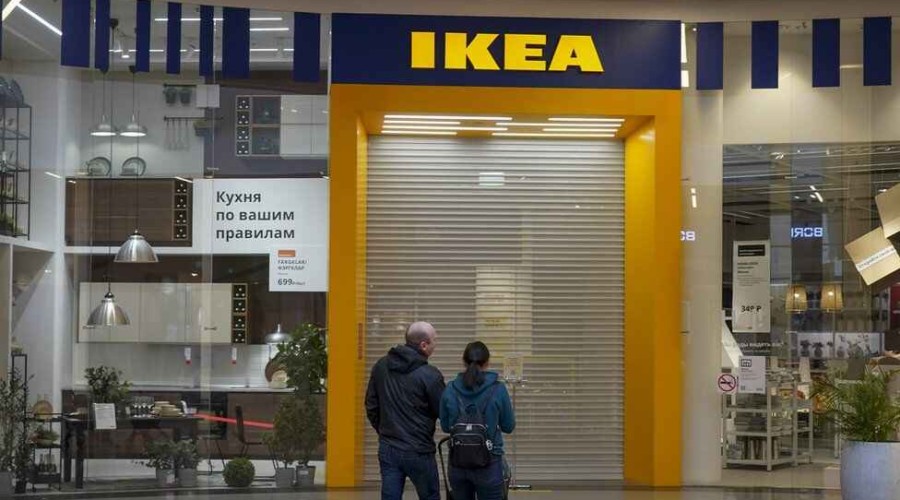Russia sanctions: How the measures have changed daily life
The US, UK and EU have put in place unprecedented financial penalties on Russia over its invasion of Ukraine, and hundreds of international companies have pulled out of the country

The impact of these measures is just starting to be felt, with the cost of basic products rising, a looming risk of job losses, and for some, an increasing sense of isolation.
Here are some of the ways daily life has been changing. Qazet.az presents all names have been changed, and currency conversions were correct at time of publication.
Cooking oil, sugar and blood pressure medication
Consumer prices jumped 2.2% in the first week of the invasion, with food among the biggest rises • Some shops are restricting the sale of staples, after reports of hoarding • Sales of medicines are not subject to sanctions, but with major shipping companies suspending services, supplies could be hit
The rouble has plummeted since Russia invaded Ukraine, leading many retailers to raise their prices. Daria, who lives in central Moscow, says she's not yet seen empty shelves. "Food won't disappear but will get more expensive," she says. "How much more expensive, I can't imagine - and am scared to even think about."
Jan, is an EU citizen who lives and works in Moscow. "On 20 February I ordered groceries for 5,500 roubles [about $57; £44] and now the same basket costs 8,000," he says. The price of milk has almost doubled in the past two weeks, he adds.
Sugar and cereal prices were already about 20% higher this February than a year ago. Russian state news agency Tass said some retailers had agreed to limit price rises on some staples to 5%. Others are restricting the amount of basics like flour, sugar and oil that customers can buy.
Daria has been stocking up. "We bought 4kg of coffee, 4 litres of sunflower oil, 4 litres of olive oil and four bottles of whisky." She has also ordered a three-month supply of medication for her high blood pressure - she says some drugs are already harder to get hold of.
Last iPhones, and a last chance at 'foreign bliss'
The price of some consumer goods has drastically increased • The cost of smartphones and televisions has increased by more than 10% and an average vacation to Turkey has increased by 29% • Major brands like Apple, Ikea and Nike no longer sell their products in Russia
Daria had been considering buying new laptops for her family, and rushed ahead with the purchase as she saw prices steadily increase. "At the beginning of February they cost about 70,000 roubles [$730; £560] but by the end of the month they had gone up to 100,000 roubles, which is what we paid. They then went up to 140,000 before they all sold out in Moscow."
